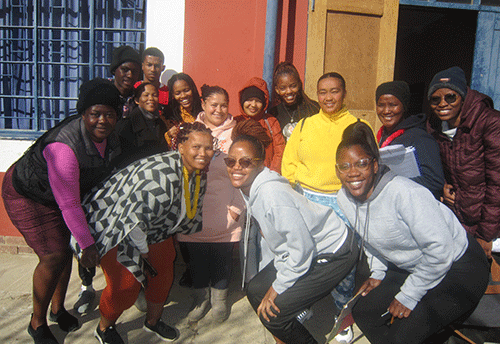KEETMANSHOOP – An initiative to help primary school learners with numeracy and literacy skills conducted a successful training programme for youth volunteers in Keetmanshoop recently.
The Teaching at the Right Level (TARL) project hosted the training of trainers’ programme for 54 youth volunteers in Keetmanshoop. According to project coordinator Njandee Mbarandongo, the objective of the intervention was to assist primary schools in the //Kharas and other regions, to address the backlog experienced in terms of learners’ numeracy and literacy skills.
“Our intention is, however, not to replace established, curriculum-based teaching methods, but rather to supplement such efforts,” he explained.
Mbarandongo added, that through assessments carried out, it has been discovered that some learners are not on par with others in terms of grasping numeracy and literacy-based subjects during classes.
“It is for this specific aim that TARL is now intervening with learning support programmes to address these challenges as teachers might not cope with continuously going one step backwards to bring such learners on the same level as those progressing according to standards,” he said.
The coordinator added that in terms of literacy skills they identified through data-based research, they discovered pronunciation, reading, letter recognition, writing and fluency in speaking English as the main areas to be addressed amongst these learners suffering to grasp it.
“Once these volunteers finish their training tomorrow, they will now be dispatched to schools identified to start with the learning-support based programme for 30 days, aiming to bring the literacy skills of the targeted learners to a level of eight out of 10,” he said.
Also speaking to this publication, Ricella Mburuu, one of the founders of TARL, explained the methodology applied to consist of three steps namely testing learners through assessments being carried out, grouping learners based on the results of such assessments and lastly implementing the programme.
Franzina Vries, senior education officer in the //Kharas region said the line ministry has up to date spearheaded the pilot programme at nine schools in the region.
“It is only when the school- and regional education management as well as parents are pushing for and support this TARL programme that it can yield the desired results,” she emphasised.
Vries continued that it is imperative that parents encourage and send their kids to the afternoon classes catered for the programme.
“Evident to the success of this programme is Ariamsvlei Primary School where the 91 participating learners have achieved a 100% graduation mark,” she said.
Meanwhile, Jareld Chimu, an unemployed teacher, who joined the training session, said he learned some extra literacy skills apart from what he has been taught at tertiary education level.
“What I found very interesting during training is that learning support is much more fun when it included games and practical activities as demonstrated during our training,” he added.
Another volunteer, Salome Hanse felt confident that transferring the knowledge and skills gained to targeted learners can improve these kids’ literacy skills in the areas of reading, writing and speaking English.
“Although finishing my education up to secondary level, I discovered a lot of new tactics here in improving one’s literacy skills,” she added. Hanse said as a first time trainee, she found the facilitating as highly valuable and useful.
– sklukowski@nepc.com.na


